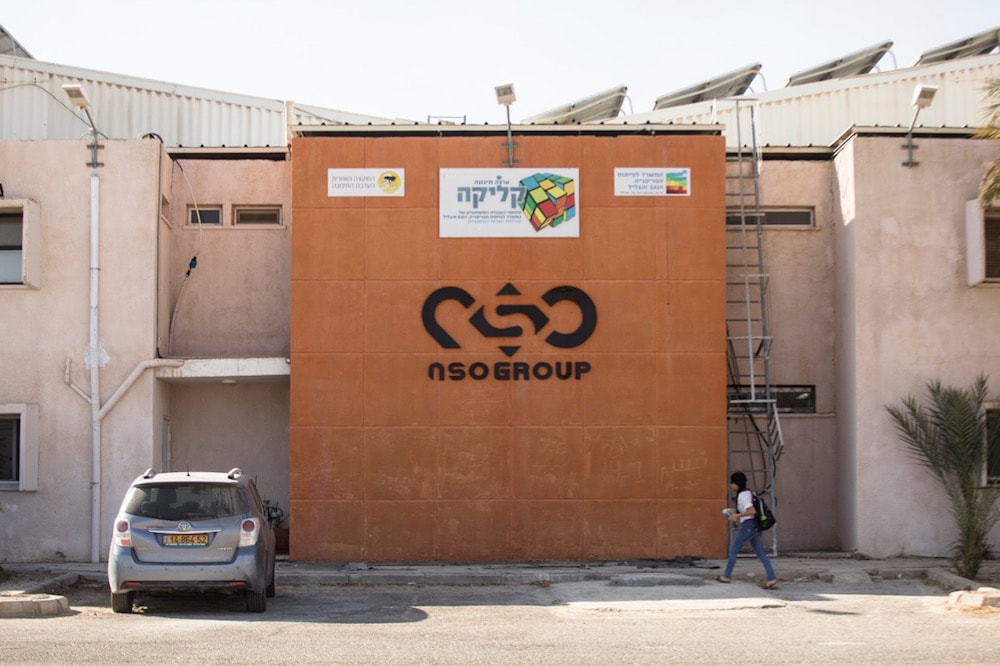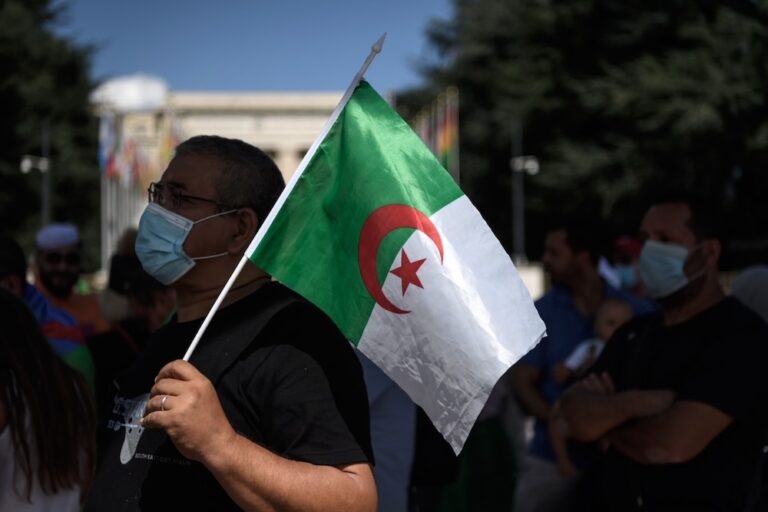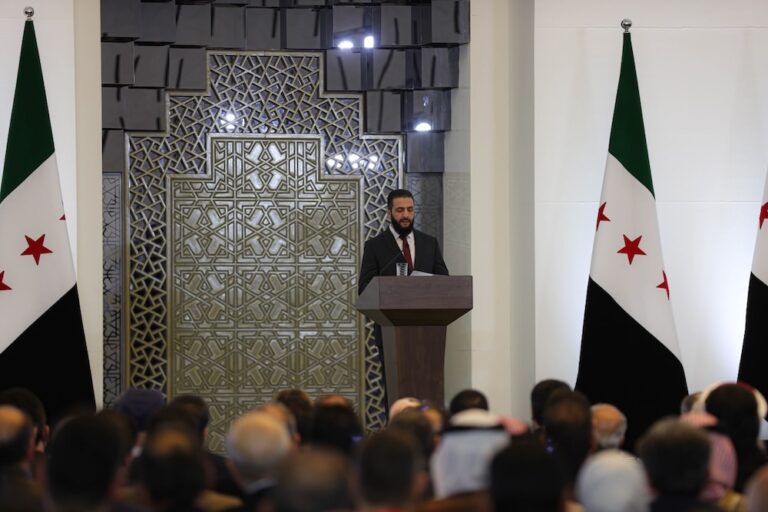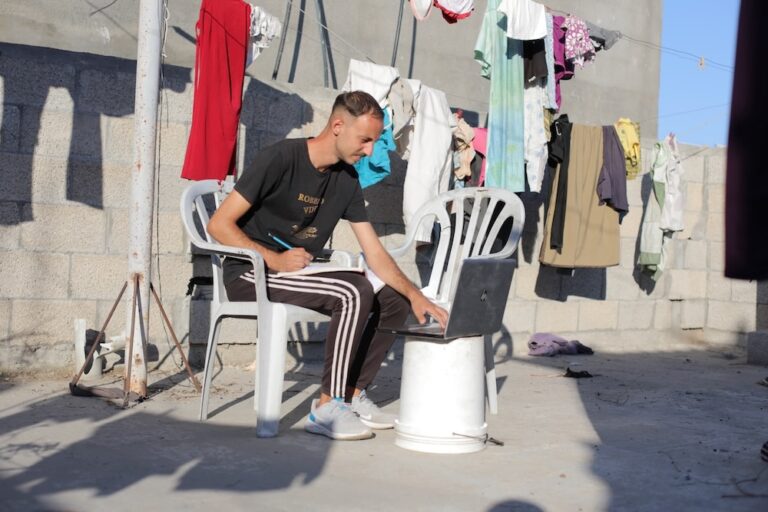The call to sanction NSO Group comes after credible reports that the company's Pegasus spyware has been repeatedly used by abusive governments to clamp down on peaceful human rights defenders, activists and perceived critics.
This statement was originally published on hrw.org on 3 December 2021.
Civil society groups, experts urge action against company
The European Union should adopt targeted sanctions against NSO Group, the Israel-based company that produces spyware, 86 human rights groups and independent experts said today in a letter to the EU foreign policy chief and foreign ministers of EU states. The call follows years of credible reporting that the group’s Pegasus spyware, which turns an infected phone into a portable surveillance tool, has assisted governments in human rights abuses.
“There is overwhelming evidence that Pegasus spyware has been repeatedly used by abusive governments to clamp down on peaceful human rights defenders, activists and perceived critics,” said Deborah Brown, senior digital rights researcher and advocate at Human Rights Watch. “The EU should immediately sanction NSO Group and ban any use of its technologies.”
In November 2021, Front Line Defenders, which protects human rights defenders at risk, revealed that NSO Group’s Pegasus spyware was used to hack the devices of six Palestinian human rights activists – the latest in a growing series of reports about human rights abuses linked to the use of technology developed by the Israel-based company. In July, the Pegasus Project consortium, a collaboration of media organizations coordinated by Forbidden Stories with the technical support of Amnesty International, exposed that Pegasus software had been used to infiltrate the devices of activists, journalists, and opposition figures in a number of countries, including in the EU. In August, the Citizen Lab, a Canadian academic research center, identified nine Bahraini activists whose iPhones had been successfully hacked with NSO Group’s Pegasus spyware.
The company has repeatedly denied allegations that Pegasus has been used to target human rights defenders, journalists, and dissidents. But none of the Pegasus Project partners or groups that revealed the hacking of Palestinians have retracted their reporting. In fact, additional independent reporting and investigations from authorities corroborated the Pegasus Project’s findings.
On November 3, the US Department of Commerce added NSO Group to its trade restriction list (Entity List), for “acting contrary to the foreign policy and national security interests of the United States.” But the measure, which prohibits the export from the US to NSO Group of any type of hardware or software without a special license from the US Commerce Department, is limited.
The EU should go a step further, the groups and experts said, putting NSO on its global human rights sanctions list and taking all appropriate action to prohibit the sale, transfer, export, import, and use of NSO Group technologies, as well as the provision of services that support NSO Group’s Group’s products, until adequate human rights safeguards are in place.
“The EU should unequivocally close its doors to business with NSO Group,” Brown said. “Targeted sanctions are necessary to that end, and to add to growing international pressure against the company and the out-of-control spyware industry.”
Read the Joint Letter
Signatories to the letter
Civil society organizations
Access Now
Agir ensemble pour les droits humains
Americans for Democracy & Human Rights in Bahrain (ADHRB)
Amnesty International
Article 19
ASEAN Parliamentarians for Human Rights
Asia Democracy Network (ADN)
Asian Forum for Human Rights and Development (FORUM-ASIA)
Asian Network for Free Elections (ANFREL)
Association for Progressive Communications (APC)
Bahrain Institute for Rights and Democracy (BIRD)
BoloBhi
Cairo Institute for Human Rights Studies (CIHRS)
Cambodian Alliance of Trade Unions (CATU)
Cambodian Center for Human Rights (CCHR)
Cambodian Food And Service Workers Federation (CFSWF)
Cambodian Human Rights and Development Association (ADHOC)
Cambodian Institute for Democracy (CID)
Cambodian Journalists Alliance Association (CamboJA)
Cambodian League for the Promotion and Defense of Human Rights (LICADHO)
Cambodian Youth Network Association (CYN)
Center for Alliance Of Labor and Human Rights (CENTRAL)
Centre for Democracy and Technology (CDT)
Centro de Derechos Humanos Miguel Agustín Pro Juárez / Miguel Agustín Pro Juárez Human Rights Centre
CNCD-11.11.11
CIVICUS
Coalition of Cambodian Farmer Community (CCFC)
Committee for Free and Fair Elections in Cambodia (COMFREL)
Consortium on Gender, Security and Human Rights
CyberPeace Institute
Daraj
Democracy for the Arab World Now (DAWN)
Derechos Digitales
Digital Rights Foundation
Egyptian Front for Human Rights (EFHR)
Egyptian Initiative for Personal Rights (EIPR)
Election Monitoring and Democracy Studies Center, Azerbaijan
Electronic Frontier Foundation (EFF)
Equitable Cambodia (EC)
EuroMed Rights
FEMENA
Free Press Unlimited
Front Line Defenders
Fundación Karisma, Colombia
Global Centre for the Responsibility to Protect
Global Forum for Media Development (GFMD)
Gulf Centre for Human Rights (GCHR)
Human Rights Commission of Pakistan (HRCP)
Human Rights House Foundation
Human Rights Watch
International Service for Human Rights (ISHR)
International Federation for Human Rights (FIDH), within the framework of the Observatory for the Protection of Human Rights Defenders
Internet Freedom Foundation (IFF), India
Labour Rights Supported Union of Khmer Employees of NagaWorld (LRSU)
Lebanese Association for Democratic Elections (LADE)
Lebanese Center for Human Rights (CLDH)
Legal Education Society, Azerbaijan
Maharat Foundation
MENA Rights Group
Mother Nature Cambodia
Network of Chinese Human Rights Defenders
Not1More (N1M)
Paradigm Initiative (PIN)
Privacy International
Red en Defensa de los Derechos Digitales (R3D)
Reporters Without Borders (RSF)
Sahmakum Teang Tnaut (STT)
Samir Kassir Foundation
Samuelson-Glushko Canadian Internet Policy & Public Interest Clinic (CIPPIC) Canada
Sharq
SEEDS For Legal Initiatives
SMEX
Southeast Asia Freedom of Expression Network (SAFEnet)
Tecnología, Investigación y Comunidad (TEDIC) Paraguay
The Miaan Group
Urgent Action Fund for Women’s Human Rights
Women’s Association for Rational Development (WARD), Azerbaijan
Women’s International League for Peace and Freedom (WILPF)
World Organisation Against Torture (OMCT), within the framework of the Observatory for the Protection of Human Rights Defenders
Youth Resources Development Program (YRDP) Cambodia
11.11.11
7amleh – The Arab Center for the Advancement of Social Media
Independent Experts
Siena Anstis, Senior Legal Advisor, the Citizen Lab at the University of Toronto’s Munk School of Global Affairs & Public Policy
Ron Deibert, Director of the Citizen Lab at the University of Toronto’s Munk School of Global Affairs & Public Policy
Tamir Israel, Clinical Lecturer, University of Ottawa, Faculty of Law (Canada)
Dr. Courtney Radsch, independent media, technology and human rights expert
Marietje Schaake, Stanford Cyber Policy Center



